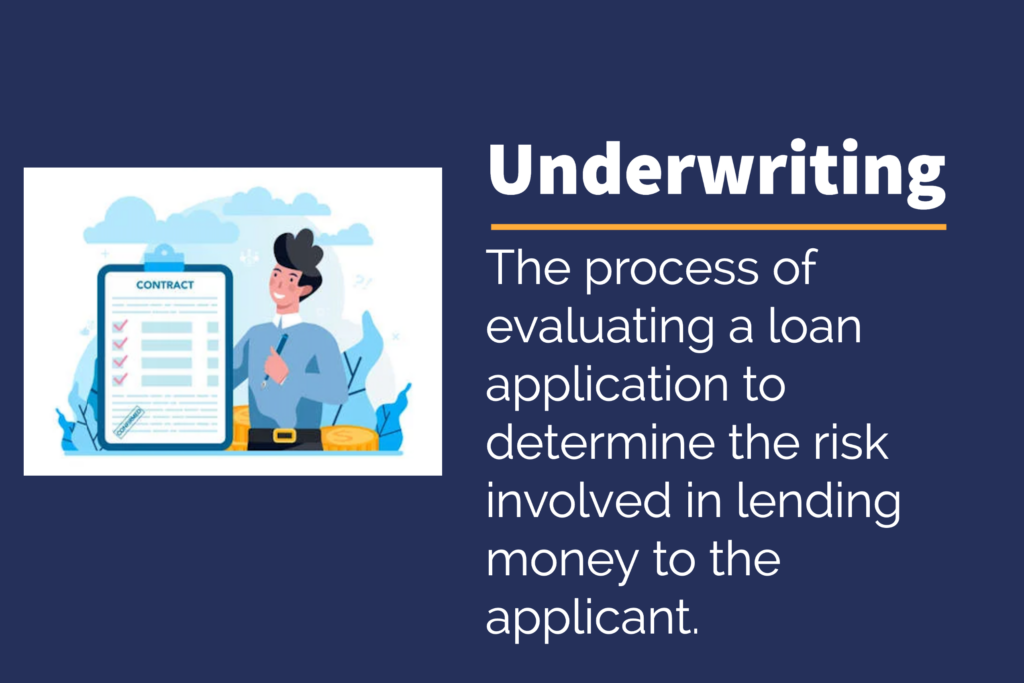The HVAC and plumbing industries are essential parts of our everyday lives, providing us with the comfort and convenience we need to live our lives. However, these industries require significant investment in equipment, tools, and materials, which can be expensive. Many businesses in these industries often require loans to finance their operations, and this is where underwriting comes in.
In this blog post, we will explore what underwriting is and why it matters when it relates to the HVAC and plumbing industries.
Grow Your Business By Partnering With Payzer
What is Underwriting?
Underwriting is the process of evaluating a loan application to determine the risk involved in lending money to the applicant. It is a crucial process in the financial industry, and it is used to determine the interest rate and loan terms for the borrower.
When a loan application is submitted, the underwriter evaluates the borrower’s credit score, income, debt-to-income ratio, and other financial information to determine their ability to repay the loan. Then, they use this information to determine the risk involved in lending money to the borrower.

Why Underwriting Matters in the HVAC and Plumbing Industries
The HVAC and plumbing industries require significant investments in equipment, materials, and labor. As a result, businesses in these industries often require loans to finance their operations. Underwriting is crucial in these industries because it helps lenders determine the risk involved in lending money to businesses in these industries.
It typically involves evaluating the borrower’s financial information, including their credit score, income, debt-to-income ratio, and tax returns. This information helps lenders determine whether the borrower is a good risk and whether they are likely to repay the loan.
The process is especially crucial for businesses in the HVAC and plumbing industries because the equipment and materials used in these industries are expensive. Lenders need to be confident that the borrower will be able to repay the loan so that they can recoup their investment.
Types of Underwriting
There are several types of underwriting, including mortgage, insurance, and securities.
Mortgage Underwriting
This is the process of evaluating a mortgage applicant’s financial information to determine whether they qualify for a home loan. The underwriter evaluates the applicant’s credit score, income, debt-to-income ratio, and other financial information to determine whether they are a good risk.
Insurance Underwriting
The process of evaluating the risk involved in insuring an individual or business. Insurance underwriters evaluate the applicant’s risk factors, including their age, health, and occupation, to determine the risk involved in providing insurance coverage.
Securities Underwriting
The process of evaluating the risk involved in issuing new securities, such as stocks and bonds. Investment banks and other financial institutions that underwrite securities conduct research to determine the risk involved in the securities offering.
Underwriting Involves Conducting Research
Underwriting involves conducting research to determine the risk involved in lending money to an applicant. This research includes evaluating the applicant’s financial information, including their credit score, income, and debt-to-income ratio. Underwriters also consider the applicant’s history of borrowing and repaying loans.
The research conducted during the underwriting process is crucial in determining whether the borrower is a good risk. If the borrower has a history of borrowing and repaying loans on time, they are more likely to be approved for a loan. On the other hand, if the borrower has a poor credit history and a history of late payments, they may not be approved for a loan.
Conclusion
Underwriting is a crucial process in the financial industry, and it is especially important in the HVAC and plumbing industries. Businesses in these industries require significant investments in equipment and materials, and underwriting helps lenders determine the risk involved in lending money to these businesses.
Grow Your Business By Partnering With Payzer
Underwriting Frequently Asked Questions
What is underwriting in simple words?
Underwriting is the process of evaluating the risk involved in lending money to an individual or business. This process is used by lenders, insurance companies, and investment banks to determine the creditworthiness of borrowers and the risk involved in providing loans or insurance coverage.
What is underwriting with an example?
An example of underwriting is mortgage underwriting. When someone applies for a mortgage, the lender will evaluate their financial information, including their credit score, income, debt-to-income ratio, and tax returns. The lender will also assess the value of the property being purchased and the borrower’s down payment.
The underwriter will use this information to determine whether the borrower is a good risk and whether they are likely to repay the loan. If the underwriter determines that the borrower is a good risk, they will approve the loan, and the borrower will receive the financing they need to purchase the property.
What is meant by underwriting in insurance?
When someone applies for insurance coverage, the insurance company will evaluate their risk factors, including their age, health, and occupation. The insurance company will use this information to determine the risk involved in providing insurance coverage to the applicant.
If the insurance company determines that the applicant is low risk, they will provide insurance coverage, and the applicant will be protected in case of an unexpected event. However, if the insurance company determines that the applicant is a high risk, they may either deny coverage or charge a higher premium to compensate for the increased risk.
How long does the underwriting process take?
The duration of the underwriting process can vary depending on a variety of factors, such as the type of loan, the complexity of the application, and the underwriting standards of the lender. In general, it can take anywhere from a few days to several weeks for the underwriting process to be completed.







